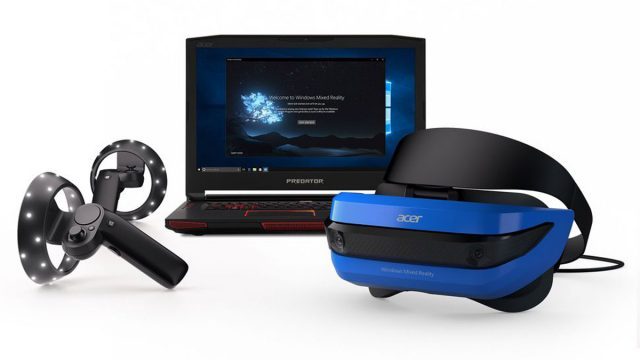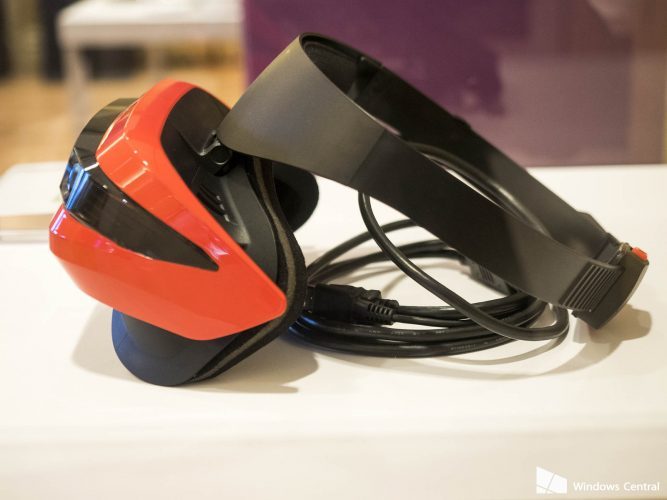Today Microsoft has unveiled their Windows Mixed Reality motion controllers. The controllers fill in a major gap in Microsoft’s strategy to become the “most complete platform across the broadest range of mixed reality devices and experiences.”
While we expect to hear a lot more about the company’s VR controllers at the Build conference today, Microsoft has so far confirmed the following:
- The controllers will come bundled with the Acer VR headset for $400 and be available on retail shelves this holiday season
- The controllers offer 6 DOF tracking, and are tracked within your field of view using the sensors in the headset and in the controllers
- Additional sensor technology coming soon could extend the controller’s tracking abilities outside of the headset’s field of view
When asked if the controllers were only available via a bundle from a given headset partner, Microsoft clarified that their hardware partners will be able to decide on an individual basis if they would like to bundle a pair of controllers or not. Microsoft confirmed that just as there are specifications for Windows VR headsets, there are similar specifications that must be met for any given OEMs implementation of the Windows VR motion controllers. This could mean that we’ll see many flavors of the Windows motion controllers, just as there are already many companies (Acer, ASUS, Dell, HP, Lenovo, and 3Glasses) planning to release a Windows MR headset.

There are however a different set of these specifications for developer hardware and the hardware that will end up being shipped to consumers. This means that the development kit headsets we’ve seen so far from companies like Acer could be somewhat under the specifications we’ll see at the consumer launch. However, one member of the Microsoft MR team said that there would be “basically no difference” between the current Acer dev kit and the version that will ship to end users.

When asked to provide more information on the new motion controllers, a member of the Windows MR team said that the controllers were in fact true six degrees of freedom controllers that take advantage of Microsoft’s inside-out tracking. The team member said that for now the controllers need to be within a given sightline of the headset, but that there may be additional sensor technology coming soon that could extend the controller’s tracking to fully behind a user’s head or back.
We’ll continue adding to our coverage of the new Mixed Reality controllers as more details become available today.






